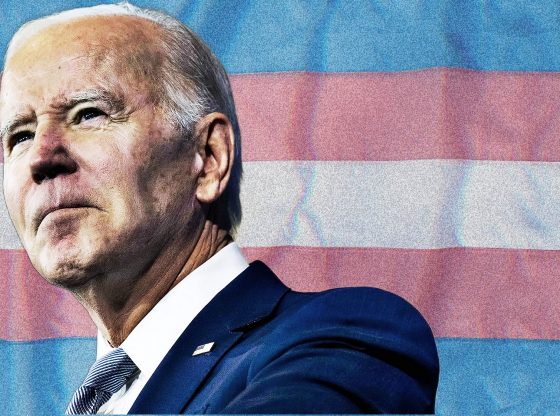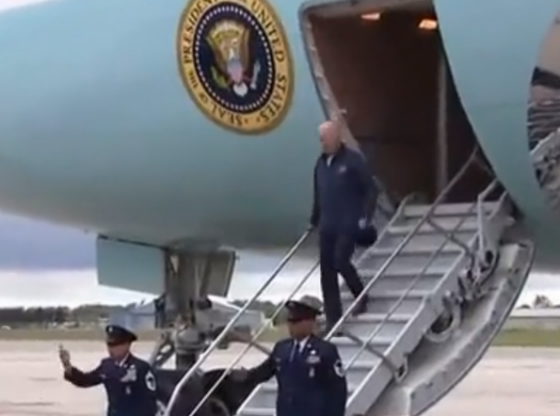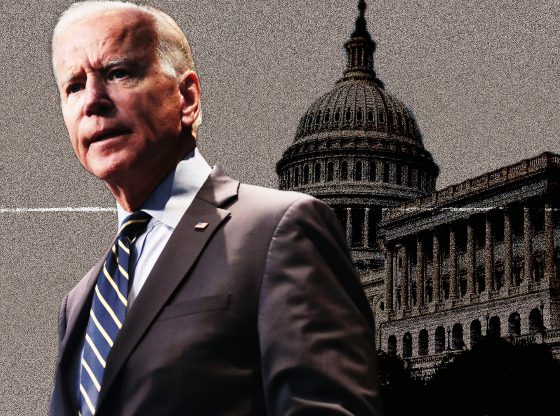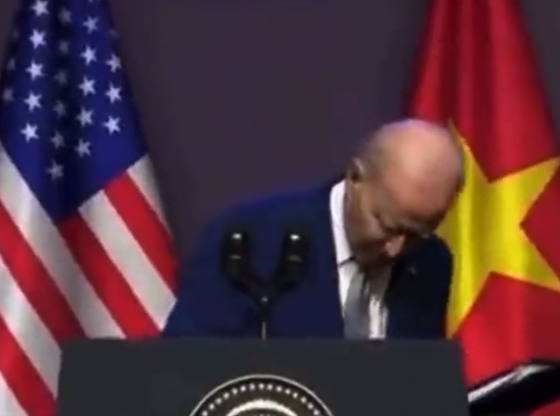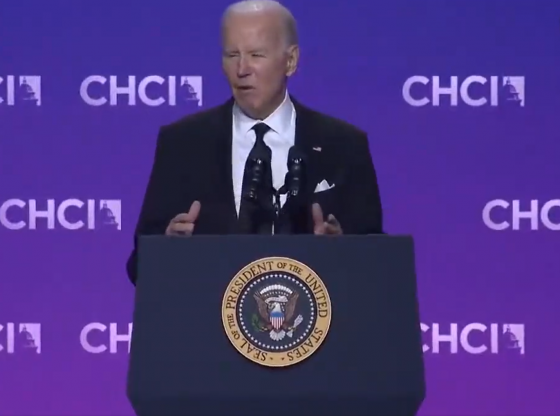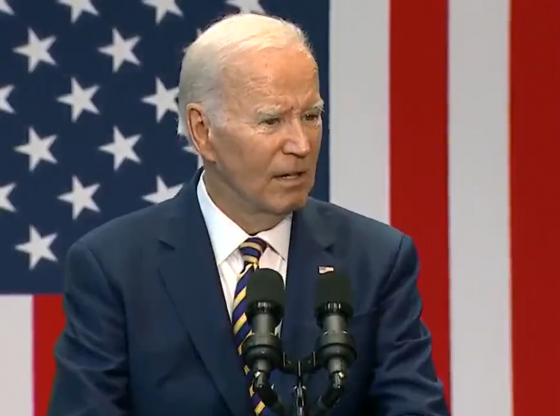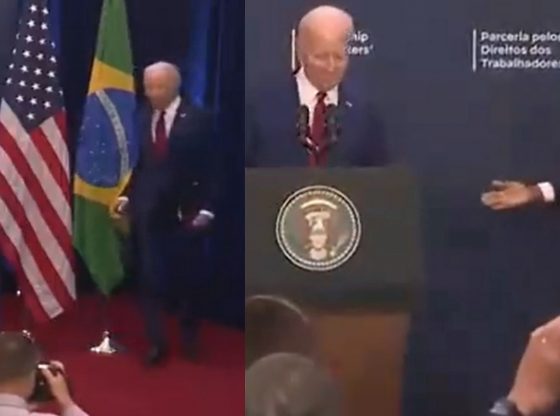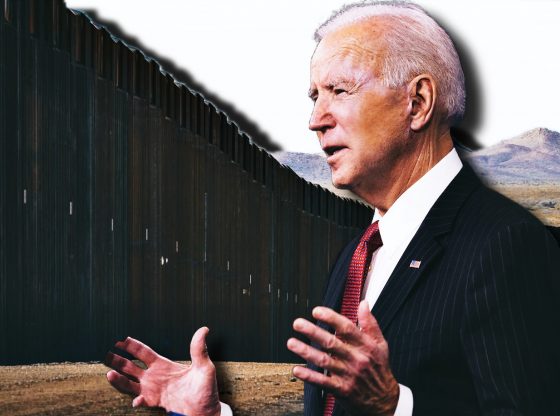- The Biden administration has sent over $100 million dollars in foreign aid to the Dominican Republic, with some of the aid aimed at correcting the country’s justice system.
- Yet the Dominican Republic’s ruling party has jailed a number of its political opponents in recent years, some of whom remain under “preventive detention,” a system that requires no charges or evidence of crime for imprisonment, according to The Associated Press and local outlet Listen Diario.
- Approximately 70% of all prisoners in the Dominican Republic are currently under preventive detention in prisons that are at 164% capacity, according to the Dominican Justice Initiative.
The Biden administration has sent tens of millions of dollars in foreign aid to the Dominican Republic, a country whose ruling party has imprisoned a number of its political opponents, according to multiple reports and federal data.
The Dominican Republic received approximately over $100 million in foreign aid from the Biden administration since President Joe Biden took office, according to ForeignAssistance.gov. The Dominican Republic’s left-leaning ruling party, the Dominican Revolutionary Party, has jailed a number of its political opponents in a country where 70% of all prisoners are in “preventive detention” — a system that requires no charges or evidence of crime for imprisonment, The Associated Press reported.
The Dominican Republic also received approximately $576 million during former President Barack Obama’s tenure and $250 million during former President Donald Trump’s tenure, according to ForeignAssistance.gov.
[The Dominican Republic is] using the judicial system and preventive detention as coercion, and they’re using it against their political foes,” Connie Mack, former Republican Florida congressman and chair of the House Foreign Affairs Subcommittee on the Western Hemisphere, told the Daily Caller News Foundation. “What’s even more sad is the amount of money that the U.S. government is spending in the Dominican Republic on so-called ‘judicial strengthening.’”
“I think it’s time that the Biden administration speaks out against this coercion, political persecution, and preventive detentions,” Mack said. “If we’re going to spend all this money in the Dominican Republic, then we should be getting something for it. And we’re not.”
Approximately $22 million in direct foreign aid was directed towards the USAID’s Dominican Republic Criminal Justice System Strengthened Project (DR CJSSP) from 2015 to 2021, which sought to “improve the Dominican Republic’s local justice system to foster adherence to rule of law and defend citizens’ human rights,” according to the U.S. Agency for International Development (USAID) and partner organization Chemonics International, a humanitarian consulting firm that operates in 100 countries across the world. The DR CJSSP ended in 2021 and was restarted in 2022 with a $23.9 million award from the USAID, according to Highergov.com.
Additionally, the U.S. has committed over $832 million to the Caribbean Basin Security Initiative (CBSI) since 2010, a security program operating in 13 different Caribbean countries, according to the State Department. Within the Dominican Republic, the CBSI has worked to strengthen “the criminal justice system by improving the timeliness and effectiveness of criminal prosecutions” and ensure the country has “improved access to justice.”
Mario Lopez, president of the Hispanic Leadership Fund, remained unconvinced that recent efforts by the U.S. to achieve criminal justice reform in the Dominican Republic had any substantial effect, in a letter to Biden sent in early August.
“It is beyond time for leadership from Washington to address this crisis and ensure the Dominican government restores due process and respects the rule of law,” Lopez wrote. “The first step in this process must be to confront the reality facing the thousands of Dominicans that are behind bars on a preventive basis… Erosion of due process and a blatant disregard for the rule of law are the hallmarks of regimes that are sliding towards authoritarianism.”
“As the primary funder of criminal justice programs through the United Nations, it is incumbent on America’s leaders to ensure member states are adhering to basic principles of due process,” Lopez wrote.
Despite the U.S. pouring in millions of dollars to improve the country’s justice system, the Dominican Republic’s ruling party, the Modern Revolutionary Party, has jailed a number of its political opponents, according to the AP.
Luis Abinader, a Modern Revolutionary Party member, won the Dominican Republic’s presidential election in 2020, removing the Dominican Liberation Party from power for the first time in 16 years, according to The New York Times. Since Abinader’s election, at least 20 former officials who served during the Dominican Liberation Party’s rule have been arrested on alleged corruption charges, according to The Associated Press.
A number of these members are being held under preventive detention, according to local outlet Listen Diario. The Dominican Republic’s Public Ministry office indicated that they were using preventive detention as a coercive measure against the opposition members.
Among those arrested were former Dominican Liberation Party presidential candidate Gonzalo Castillo, former administrative minister to the presidency Jose Peralta, and former finance minister Donald Guerrero, according to the AP. Despite not having been formally charged with a crime, Guerrero was sentenced to 18 months in preventive detention in April of this year, Listen Diario reported.
Guerrero’s legal team said that it was a violation of their client’s rights that they have not yet been provided with the case file necessary to create a defense, local outlet Hoy reported. One of Guerrero’s lawyers recently said he was the target of a state-sponsored cyber attack after getting a notification from Apple, and called the attack “befitting of state terrorism and dictatorial governments,” in a tweet on Tuesday.
On the day of Guerrero’s arrest in March, hundreds of supporters gathered outside the country’s Justice Palace to protest, according to the AP. Other members of the Dominican Liberation Party said Guerrero and the other officials’ arrest was “markedly political.”
“It’s really hard. I spoke to his [Guerrero’s] son a number of times. And I just can’t imagine being in a position where my father is being held… It’s political persecution,” Mack said. “If they did this to Donald Guerrero, what’s keeping them from doing this to the other members of the family? And I think that’s a scary prospect.”
Guerrero is one of the nearly 70% of prisoners in the Dominican Republic who are currently being held under preventive detention in prisons that are at 164% capacity, according to the Dominican Justice Initiative. The country continues to receive foreign aid from the current Biden administration, a fact that Mack told the DCNF he takes issue with.
“It always goes back to the funding – we’re sending millions of dollars to the Dominican Republic… They used to pretend they were solving the preventive detention crisis. But they don’t even bring it up anymore. It’s not even mentioned,” Mack said. “Everyone recognizes that preventive detention is coercive and that it’s wrong. And that it flies in the face of the rule of law and human rights.”
“So if we’re sending money and not even having an expectation that they’re going to address preventive detention? I think the administration does have responsibility,” Mack said.
Republican Rep. Michael McCaul of Texas sent a letter to President Joe Biden last Wednesday demanding answers as to how many Americans are currently imprisoned in the Dominican Republic, and which ones are held under preventive detention, a system he referred to as an “endemic issue.” Abinader responded on Wednesday and called McCaul’s concern over preventive detention a “lobbying action,” according to CDN News.
“The Department of State monitors prison conditions globally. Pretrial detention and prison conditions in the Dominican Republic are known challenges reported on in the Human Rights Report, and on which the State Department continues to engage with the Government of the Dominican Republic,” a State Department spokesperson told the DCNF. “The U.S. Embassy in Santo Domingo continues to explore opportunities to deepen our partnership with the Government of the Dominican Republic along the entire judicial process.”
Jake Smith on September 3, 2023



